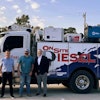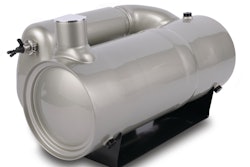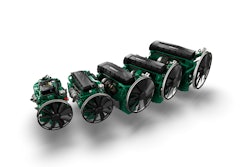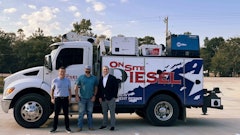Sensors Inc., a Saline, MI based manufacturer of vehicle exhaust emission analyzers, announces it has entered into an agreement with Pegasor Oy of Tampere, Finland to add the PEGASOR PPS-M to its ECOSTAR line of real-world emission analyzers. The PPS-M core technology has been integrated into an ECOSTAR module designated the Continuous Particulate Monitor (ECOSTAR CPM) and is now being delivered to customers worldwide.
“The PPS-M employs a novel technique for real-time, continuous and highly sensitive measurement of raw exhaust particulate matter (PM) emissions,” states Juha Tikkanen, Vice President of Marketing and Sales, Pegasor. “The system’s unique flow-through design provides for rapid, continuous PM measurements over a wide range of temperatures. The device accurately measures active particle surface area, and can be easily set up to provide both particle mass and number concentrations.”
The ECOSTAR CPM offers a number of advantages that make it distinct in this market space. There is no cross sensitivity to nitrogen oxides (NOx), and it measures complete PM, which is a combination of non-volatile organics as well as black carbon. It also has a much faster response rate, 0.2 seconds, than other concentration-based systems. Finally, its reliability and robustness have been enhanced by Sensor Inc.’s development team to make it suitable for real-world applications as well as laboratory use.
“The addition of a real-time device enables Sensors to offer a complete solution to regulatory requirements promulgated throughout the world,” says Don Soenen, President and CEO of Sensors Inc. “This is especially important in Europe, which is in the midst of implementing regulations requiring the measurement of particulate concentrations, and in Asia, where we expect real-world testing to become increasingly important.”

















